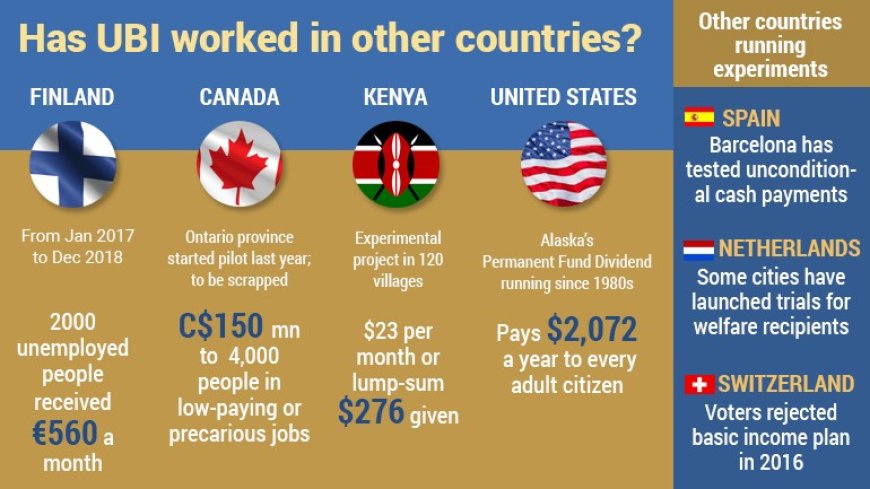Libertarian Approaches to Universal Basic Income (UBI) in India
Explore how Universal Basic Income aligns with libertarian principles in India, promoting financial security and individual freedom while reducing government intervention.

Overview
Universal Basic Income (UBI) is gaining traction globally as a potential solution to combat poverty and inequality. In India, the concept of UBI aligns closely with libertarian principles, promoting individual freedom and responsibility while reducing government intervention. This article explores the potential implementation of UBI in India through a libertarian lens, analyzing its benefits, challenges, and current pilot projects.
Understanding Universal Basic Income

Universal Basic Income entails providing all citizens with a regular, unconditional cash payment, regardless of their income or employment status. The idea is to ensure financial security and empower individuals to make choices about their lives without the constraints imposed by economic hardships. For libertarians, UBI serves as a means to decentralize welfare, placing more control in the hands of individuals rather than government agencies.
Benefits of UBI Through a Libertarian Lens
-
Empowerment and Choice: UBI grants individuals the financial freedom to pursue education, entrepreneurship, or other opportunities, aligning with libertarian ideals of personal choice and self-determination.
-
Reduced Bureaucracy: Implementing UBI could streamline welfare programs, reducing bureaucratic overhead and inefficiencies associated with means-tested benefits, thus minimizing government intervention.
-
Encouraging Responsibility: With a guaranteed income, individuals are more likely to invest in their skills and education, leading to a more productive society. This sense of responsibility can foster a culture of self-improvement.
-
Addressing Inequality: UBI can help bridge the income gap, providing a safety net for the most vulnerable populations, ensuring that basic needs are met without creating dependency on government assistance.
Current Pilot Projects in India

Several states in India have initiated pilot projects to test the feasibility of UBI:
-
Madhya Pradesh: A pilot project in rural Madhya Pradesh provided a basic income to participants, resulting in improved living standards, increased spending on education and health, and enhanced entrepreneurial activities.
-
Sikkim: Sikkim has experimented with cash transfers, observing positive impacts on poverty alleviation and economic growth. The state's initiatives illustrate the potential benefits of UBI in addressing regional disparities.
-
Odisha: The government of Odisha launched the KALIA (Krushak Assistance for Livelihood and Income Augmentation) scheme, which provides financial assistance to farmers. While not a true UBI, it demonstrates the effectiveness of direct cash transfers in supporting livelihoods.
These pilot projects highlight the potential for UBI to foster economic resilience and improve quality of life, resonating with libertarian ideals of empowering individuals and promoting self-sufficiency.
Challenges to Implementation

While the benefits of UBI are compelling, challenges remain:
-
Funding: A major concern is the financial sustainability of UBI. Exploring various funding mechanisms, such as reallocating subsidies or implementing progressive taxation, is crucial.
-
Political Will: Implementing UBI requires strong political support and public awareness. Educating citizens on the long-term benefits of UBI is essential to garnering widespread acceptance.
-
Measurement of Impact: Establishing effective metrics to assess the impact of UBI on poverty reduction and economic activity is necessary for evaluating its success and scalability.
Conclusion

Universal Basic Income presents a promising avenue for addressing poverty and inequality in India while aligning with libertarian principles of individual freedom and reduced government intervention. As pilot projects demonstrate the potential benefits, ongoing discussions about funding and implementation strategies will be crucial for making UBI a reality. By embracing UBI, India can take a significant step towards empowering its citizens, fostering financial security, and creating a more equitable society.
What's Your Reaction?





















































